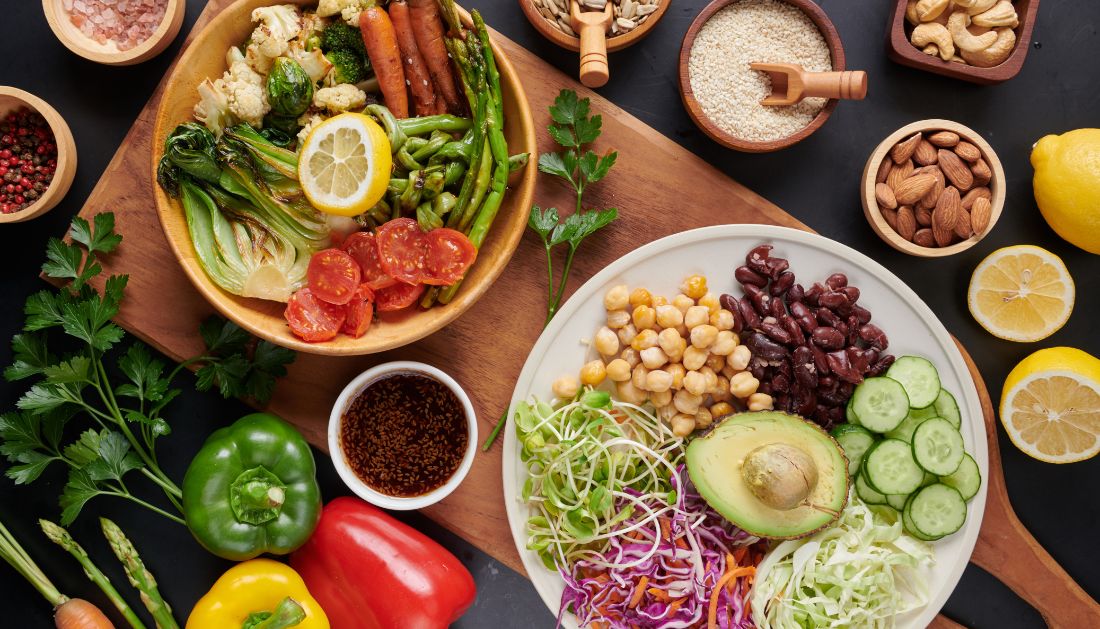

Vegetarian diets are widely recognized for their health benefits, including reduced risks of heart disease, diabetes, and obesity. However, a recent study published in npj Aging suggests that older adults following vegetarian diets may be less likely to achieve healthy aging—unless they consume high-quality, nutrient-dense plant-based foods.
Key Findings on Vegetarian Diets and Longevity
Researchers analyzed data from the Chinese Longitudinal Healthy Longevity Survey, which followed individuals aged 60+ over multiple decades. Their results showed:
-
Vegetarians were 35% less likely to achieve healthy aging compared to omnivores.
-
Vegans had the lowest odds—57% less likely to experience healthy aging.
-
Long-term vegetarian diets increased risks of chronic diseases, physical impairment, and cognitive decline.
-
High-quality plant-based diets (hPDI) eliminated the disadvantage compared to omnivores.
These findings highlight that diet quality—not just vegetarianism—plays a crucial role in aging well.
Why Vegetarian Diets May Impact Healthy Aging
While plant-based diets offer benefits, older adults may struggle with nutrient deficiencies, including:
Vitamin B12 & Iron Deficiency – Leading to cognitive decline and anemia.
Omega-3 Fatty Acids Deficiency – Impacting brain health and inflammation.
Protein Deficiency – Contributing to muscle loss and frailty.
Calcium & Vitamin D Deficiency – Increasing the risk of osteoporosis and fractures.
Low-income and lower-educated participants were more likely to follow poor-quality vegetarian diet, suggesting that socioeconomic factors may also influence health disparities.
Should Seniors Follow a Vegetarian Diet?
This study suggests that a well-balanced vegetarian diet can support healthy aging, but poor-quality plant-based diets may accelerate age-related decline.
Key Takeaways:
Prioritize whole grains, fruits, and vegetables for optimal nutrition.
Include plant-based protein sources like legumes, tofu, and nuts.
Consider B12 and omega-3 supplements to prevent deficiencies.
Monitor bone and muscle health to prevent age-related decline.
Final Thoughts
Vegetarian diets can be beneficial, but diet quality matters. Older adults should focus on nutrient-dense plant-based foods and consider supplementation when needed. As research evolves, personalized dietary recommendations will be key to supporting healthy aging.
For more information: Jigeer, G., Wang, K., Lv, Y., Tucker, K. L., Shen, X., Chen, F., Sun, L., Shi, X., Li, Y., & Gao, X. (2025). Vegetarian diet and healthy aging among Chinese older adults: A prospective study. Npj Aging, 11(1), 1-8. DOI: 10.1038/s41514-025-00213-4, https://www.nature.com/articles/s41514-025-00213-4
more recommended stories
 Type 2 Diabetes Risk Identified by Blood Metabolites
Type 2 Diabetes Risk Identified by Blood MetabolitesKey Takeaways (Quick Summary) Researchers identified.
 Microglia Neuroinflammation in Binge Drinking
Microglia Neuroinflammation in Binge DrinkingKey Takeaways (Quick Summary for HCPs).
 Durvalumab in Small Cell Lung Cancer: Survival vs Cost
Durvalumab in Small Cell Lung Cancer: Survival vs CostKey Points at a Glance Durvalumab.
 Rising Chagas Parasite Detected in Borderland Kissing Bugs
Rising Chagas Parasite Detected in Borderland Kissing BugsKey Takeaways (At a Glance) Infection.
 Can Ketogenic Diets Help PCOS? Meta-Analysis Insights
Can Ketogenic Diets Help PCOS? Meta-Analysis InsightsKey Takeaways (Quick Summary) A Clinical.
 Ancient HHV-6 Genomes Confirm Iron Age Viral Integration
Ancient HHV-6 Genomes Confirm Iron Age Viral IntegrationKey Takeaways for HCPs Scientists reconstructed.
 Fat-Regulating Enzyme Offers New Target for Obesity
Fat-Regulating Enzyme Offers New Target for ObesityKey Highlights (Quick Summary) Researchers identified.
 Gestational Diabetes Risk Identified by Blood Metabolites
Gestational Diabetes Risk Identified by Blood MetabolitesKey Takeaways (Quick Summary for Clinicians).
 Pelvic Floor Disorders: Treatable Yet Often Ignored
Pelvic Floor Disorders: Treatable Yet Often IgnoredKey Takeaways (Quick Summary) Pelvic floor.
 Circadian Control of Neutrophils in Myocardial Infarction
Circadian Control of Neutrophils in Myocardial InfarctionKey Takeaways for HCPs Neutrophil activity.

Leave a Comment